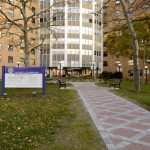Aspirin Caused Bleeds May Outweigh Cardiovascular Benefit, Without Effect on Cancer
European Society of Cardiology
Aspirin prevented serious vascular events in patients with diabetes who did not already have cardiovascular disease, but it caused almost as many major bleeds and there was no effect on cancers. These are the late breaking findings presented recently in a Hot Line Session at ESC Congress 2018 and published in the New England Journal of Medicine.
Patients with diabetes are at increased risk of cardiovascular disease
Patients with diabetes are, on average, at increased risk of cardiovascular disease. Aspirin reduces the risk of second cardiovascular events and is recommended for patients who have evidence of cardiovascular disease. However, its role in preventing first events (primary prevention) is less clear because of the increase in bleeding. It has therefore been unclear whether aspirin should be recommended for cardiovascular prevention in diabetic patients without existing cardiovascular disease.
Professor Jane Armitage, principal investigator, Nuffield Department of Population Health, University of Oxford, UK, said: “Even though we showed clearly that aspirin reduces the risk of vascular events, including heart attacks, strokes, and mini-strokes, it also increased the risk of major bleeds, mainly from the gastrointestinal tract, so overall there was no clear benefit. It had been suggested that low-dose aspirin might protect against cancer, but we saw no reduction in any cancers; we are continuing to follow the participants to see whether any benefits appear later.”
ASCEND trial
The ASCEND trial (A Study of Cardiovascular Events iN Diabetes) examined whether aspirin reduced the risk of a first cardiovascular event in patients with diabetes. Between 2005 and 2011, 15,480 patients with diabetes but no history of cardiovascular disease were randomly assigned to aspirin (100 mg daily) or matching placebo.
Serious health outcomes that occurred to participants during follow-up were then recorded, including in particular:
- first serious vascular event (the primary efficacy endpoint), which included non-fatal heart attacks, non-fatal strokes or transient ischaemic attacks (sometimes called “mini-strokes”), or death from a cardiovascular cause (but excluding any intracranial haemorrhage; i.e. bleeding in the head or brain); and
- first major bleed (the primary safety endpoint), which included bleeding in the head or brain, from the gut or from elsewhere in the body that was serious enough to result in hospitalisation or be fatal.
During an average of 7.4 years of follow-up, a first serious vascular event occurred in 685 (8.5%) participants allocated aspirin and 743 (9.6%) allocated placebo, which meant 11 of every 1,000 participants avoided a serious vascular event during the trial as a result of allocation to aspirin. This represented a 12% (95% confidence interval [CI] 3–21%, p=0.01) proportional reduction in the risk of serious vascular events.
First major bleed occurred in 314 (4.1%) participants allocated aspirin
However, a first major bleed occurred in 314 (4.1%) participants allocated aspirin and 245 (3.2%) participants allocated placebo, which meant that 9 of every 1,000 participants suffered a first major bleed during the trial as a result of allocation to aspirin. This represented a 29% (95% CI 9–52%, p=0.003) proportional increase in the risk of major bleeding.
The numbers of participants who avoided a serious vascular event were counterbalanced by the numbers who suffered a major bleed
Consequently, overall, the numbers of participants who avoided a serious vascular event were counterbalanced by the numbers who suffered a major bleed. Even among the participants in the trial at highest vascular risk (over 2% per year), there were similar numbers of serious vascular events avoided as major bleeds caused. It was not possible to identify a group of patients in the trial in whom the benefits clearly outweighed the risks.
Previous studies suggested aspirin might produce a reduction in cancers in the gut, with effects increasing over time
Previous studies had suggested that aspirin might produce a reduction in cancers in the gut (especially in the bowel), with the effects increasing over time. A large number of cancers were observed during 7.4 years of follow-up in the ASCEND trial. However, no effect of aspirin on incident gastrointestinal cancer was observed: 157 (2.0%) participants allocated aspirin and 158 (2.0%) participants allocated placebo (p=0.95) reported these cancers. Nor was there any apparent effect of aspirin on the overall risk of cancer (11.6% of those allocated aspirin versus 11.5% of those allocated placebo; p=0.81). Longer-term follow-up is ongoing to see if any effects on cancer emerge later.
Professor Armitage said: “We have shown conclusively in ASCEND that aspirin reduces the risk of vascular events in primary prevention, as it does in people who already have cardiovascular disease, but these benefits are counter-balanced by the number of major bleeds caused by aspirin. This is an important finding with implications for many millions of people who have diabetes but have not yet had cardiovascular events. Current clinical guidelines vary in their recommendations about the use of aspirin for primary prevention because of a previous lack of clear evidence. The results of ASCEND now provide much needed clarity.”
Trial participants well-managed both for their diabetes and their cardiovascular risk
“The trial participants were well-managed both for their diabetes and their cardiovascular risk,” she added. “Most participants were taking proven safe treatments, such as statins and blood pressure reducing medicines which will be protecting them from heart attacks and strokes. For them, we have shown that there is no added benefit of taking aspirin.”
 Node Smith, ND, is a naturopathic physician in Portland, OR and associate editor for NDNR. He has been instrumental in maintaining a firm connection to the philosophy and heritage of naturopathic medicine among the next generation of docs. He helped found the first multi-generational experiential retreat, which brings elders, alumni, and students together for a weekend camp-out where naturopathic medicine and medical philosophy are experienced in nature. Four years ago he helped found the non-profit, Association for Naturopathic ReVitalization (ANR), for which he serves as the board chairman. ANR has a mission to inspire health practitioners to embody the naturopathic principles through experiential education. Node also has a firm belief that the next era of naturopathic medicine will see a resurgence of in-patient facilities which use fasting, earthing, hydrotherapy and homeopathy to bring people back from chronic diseases of modern living; he is involved in numerous conversations and projects to bring about this vision.
Node Smith, ND, is a naturopathic physician in Portland, OR and associate editor for NDNR. He has been instrumental in maintaining a firm connection to the philosophy and heritage of naturopathic medicine among the next generation of docs. He helped found the first multi-generational experiential retreat, which brings elders, alumni, and students together for a weekend camp-out where naturopathic medicine and medical philosophy are experienced in nature. Four years ago he helped found the non-profit, Association for Naturopathic ReVitalization (ANR), for which he serves as the board chairman. ANR has a mission to inspire health practitioners to embody the naturopathic principles through experiential education. Node also has a firm belief that the next era of naturopathic medicine will see a resurgence of in-patient facilities which use fasting, earthing, hydrotherapy and homeopathy to bring people back from chronic diseases of modern living; he is involved in numerous conversations and projects to bring about this vision.










